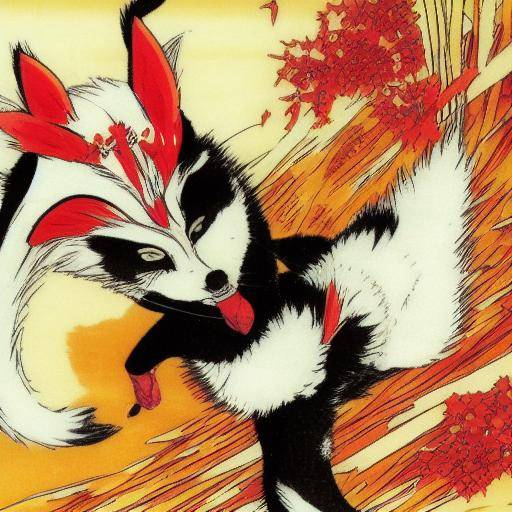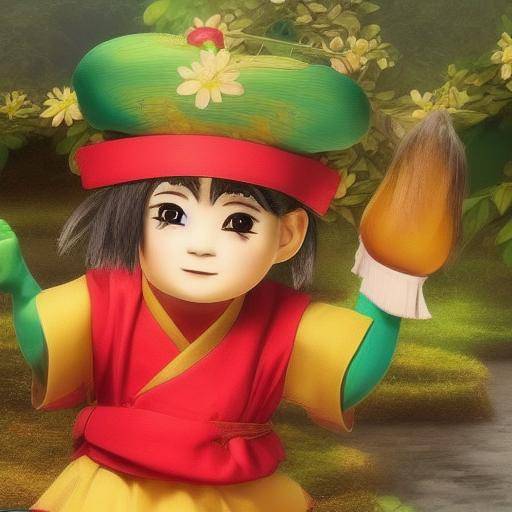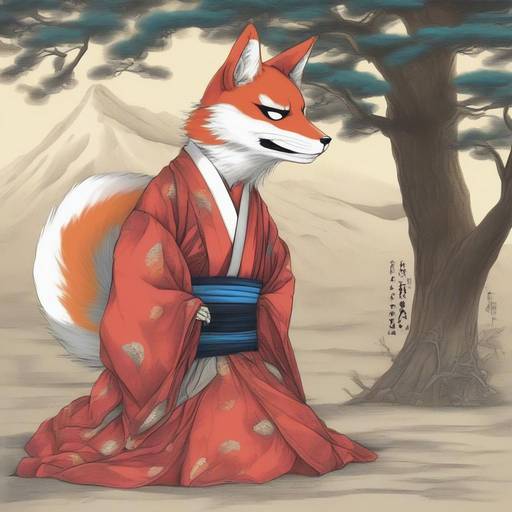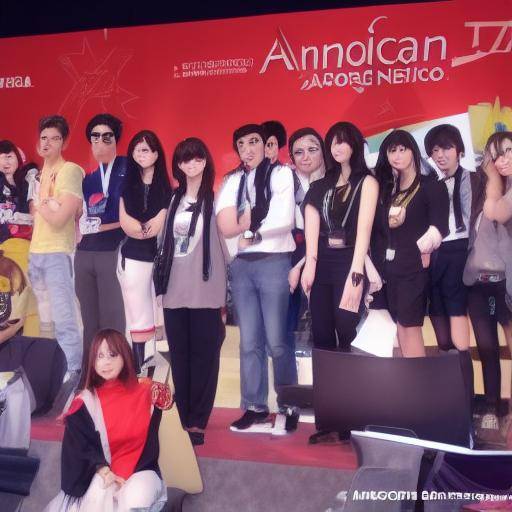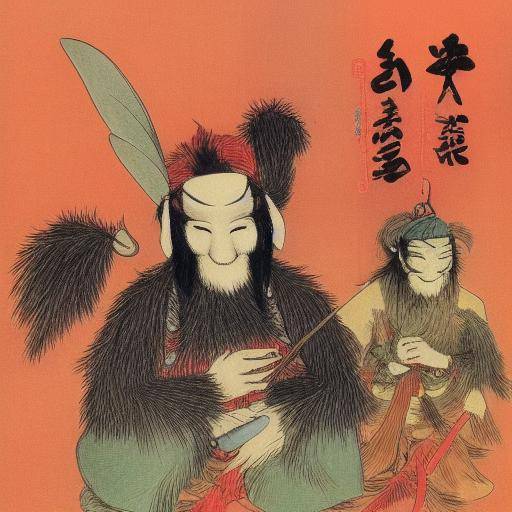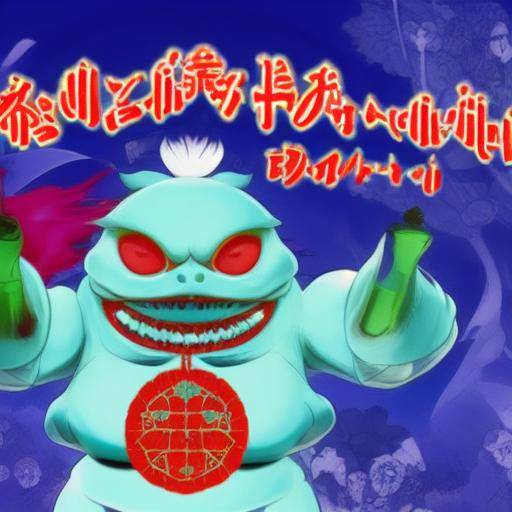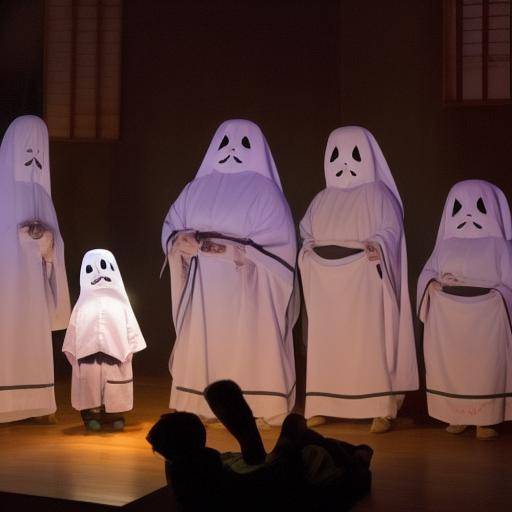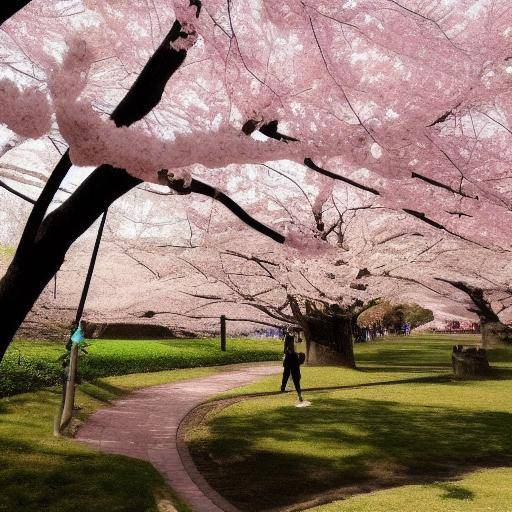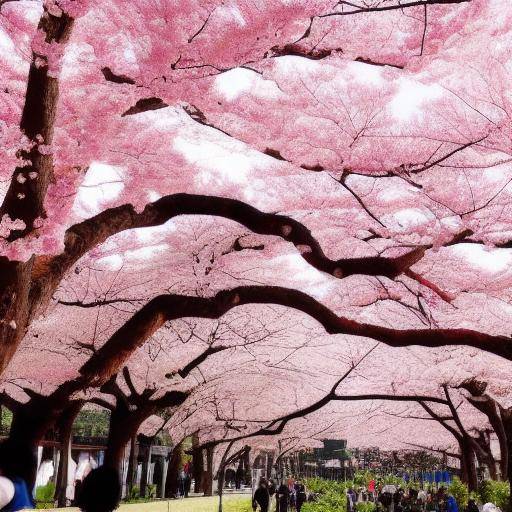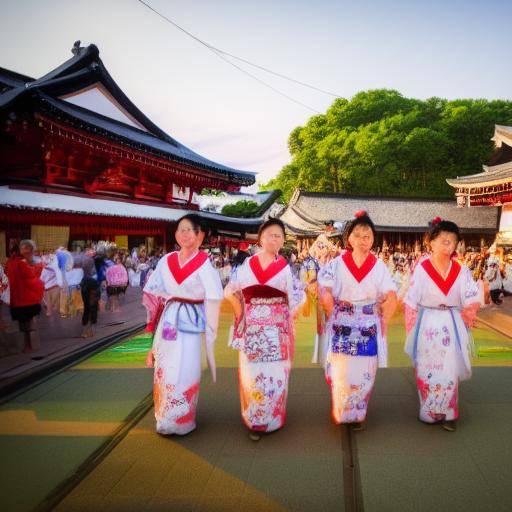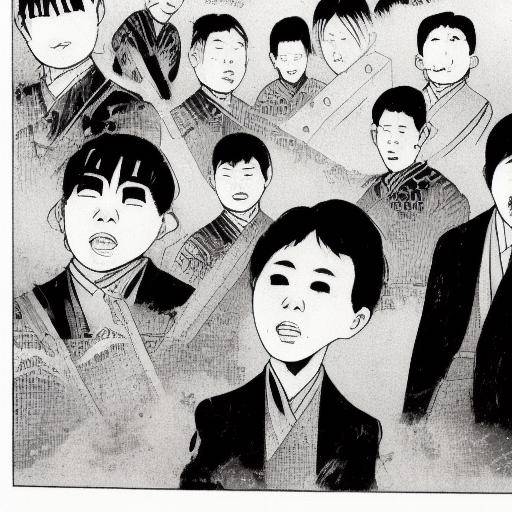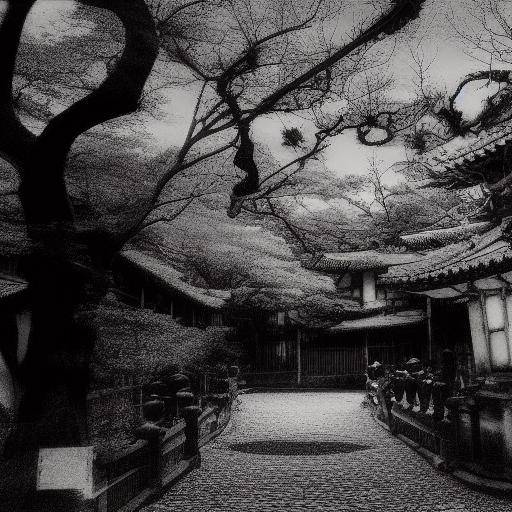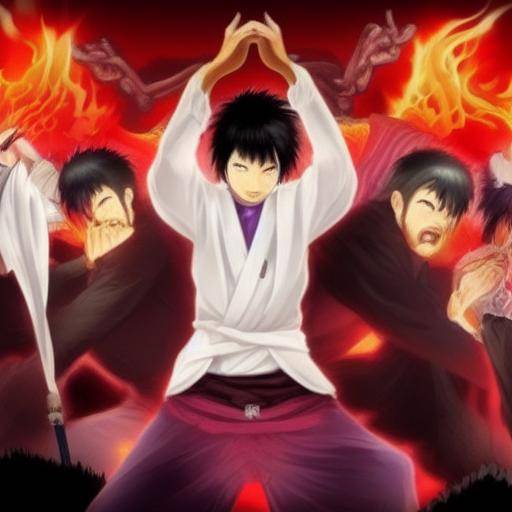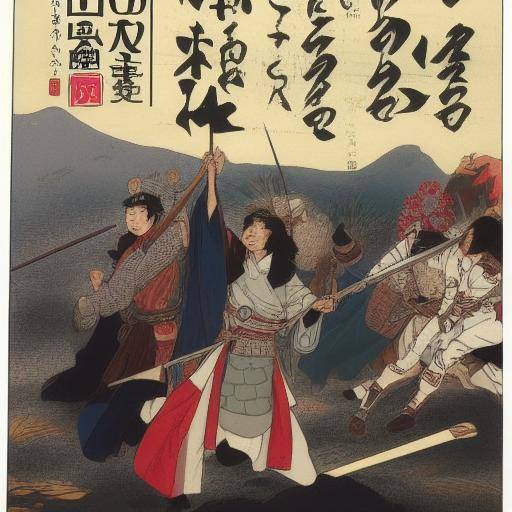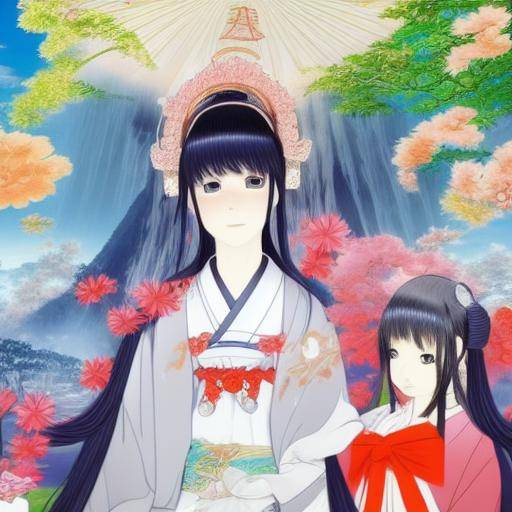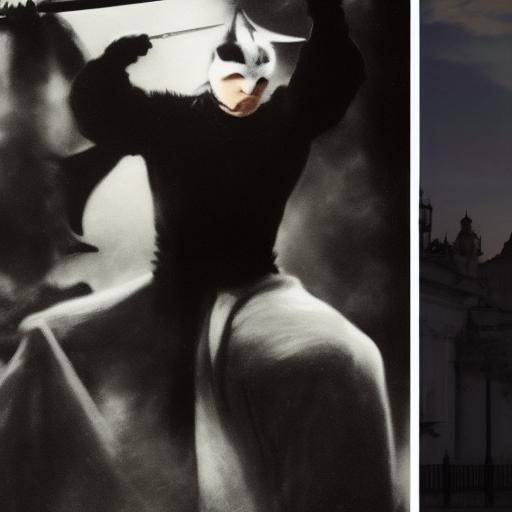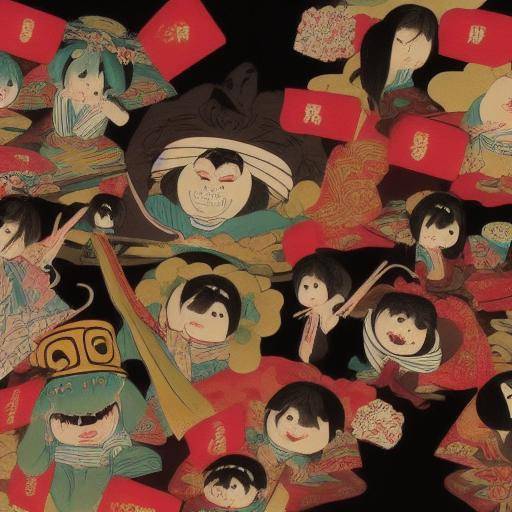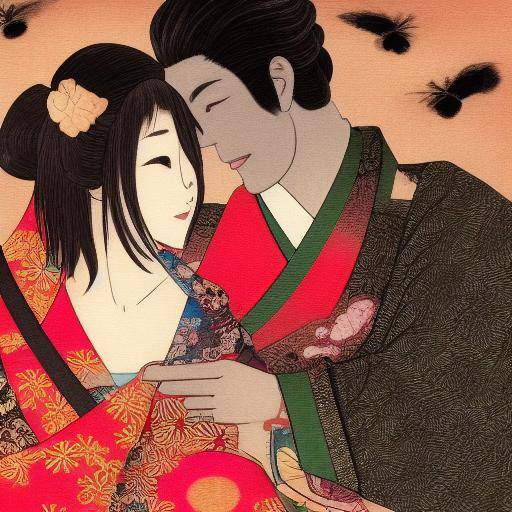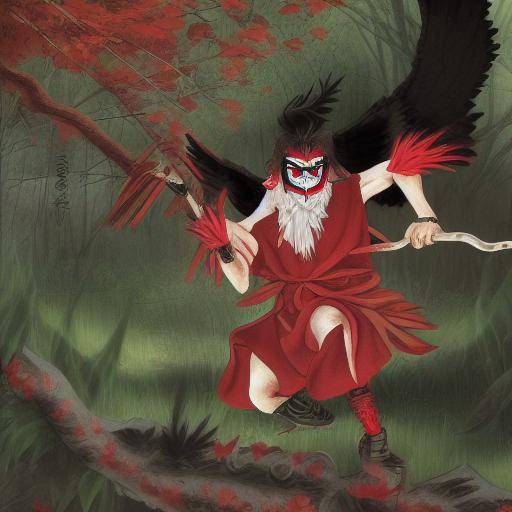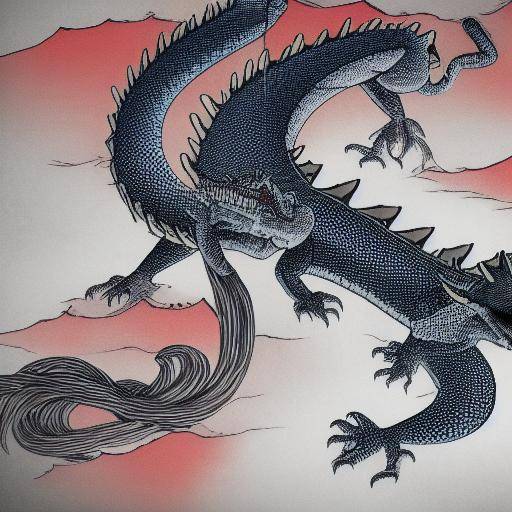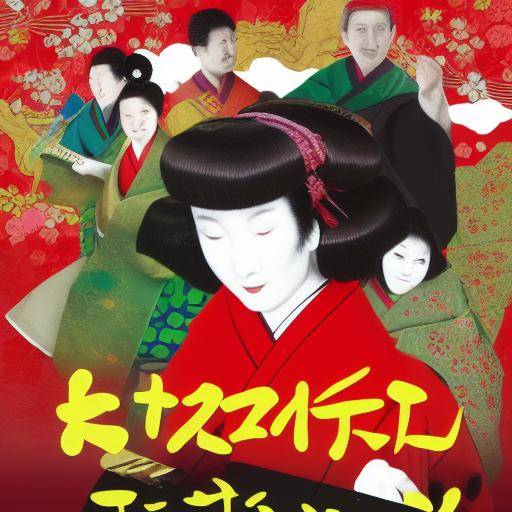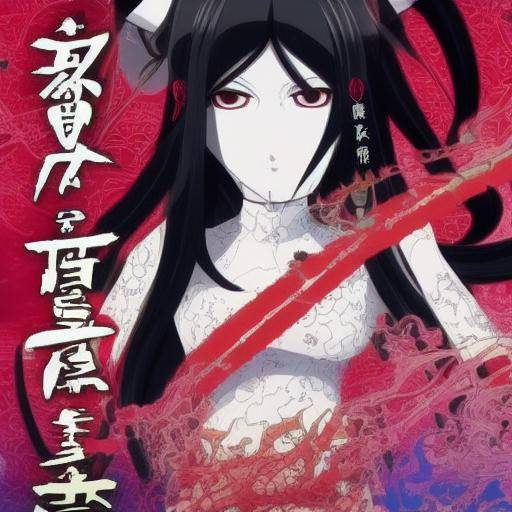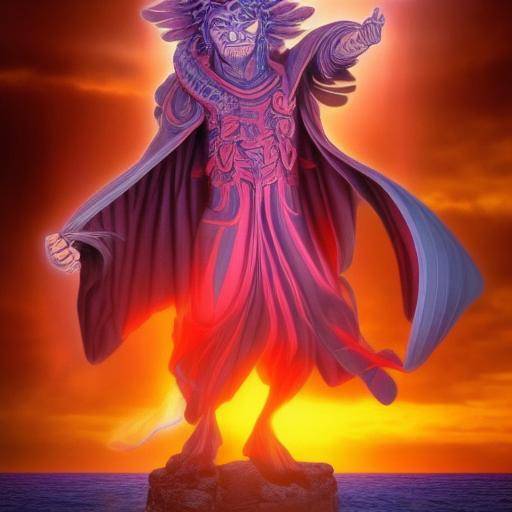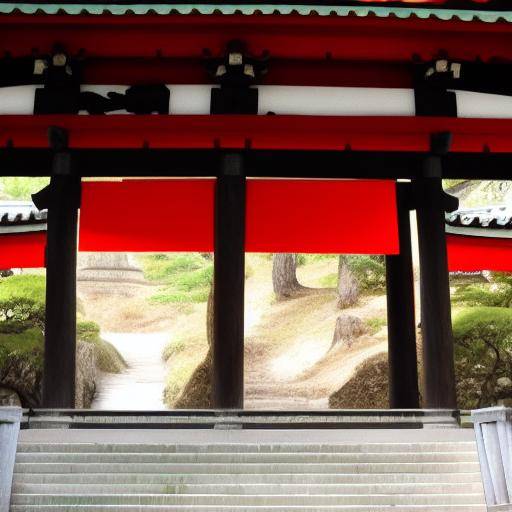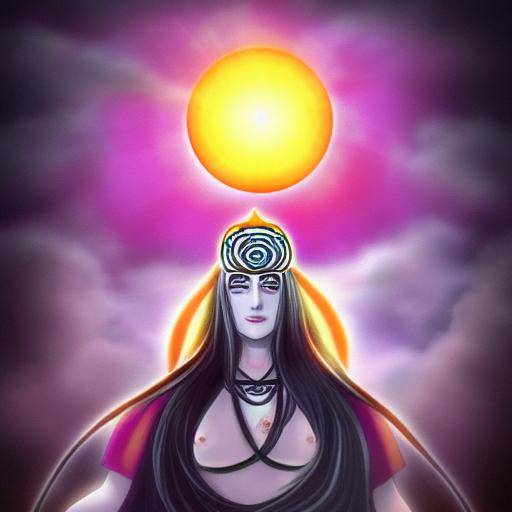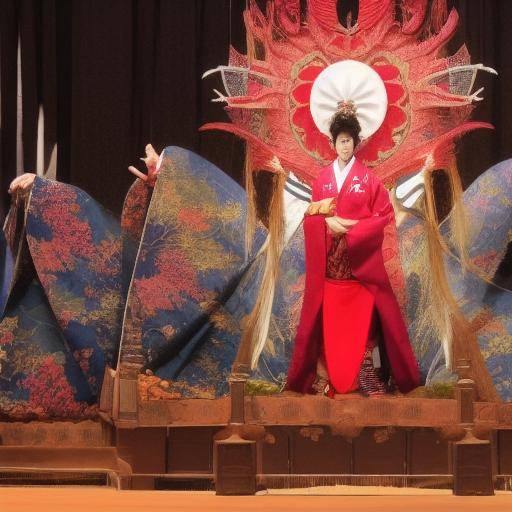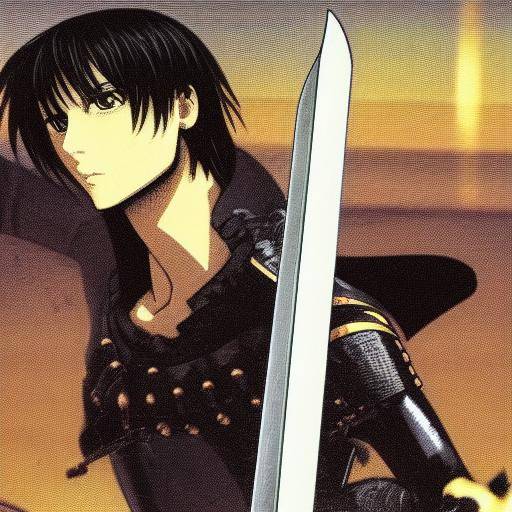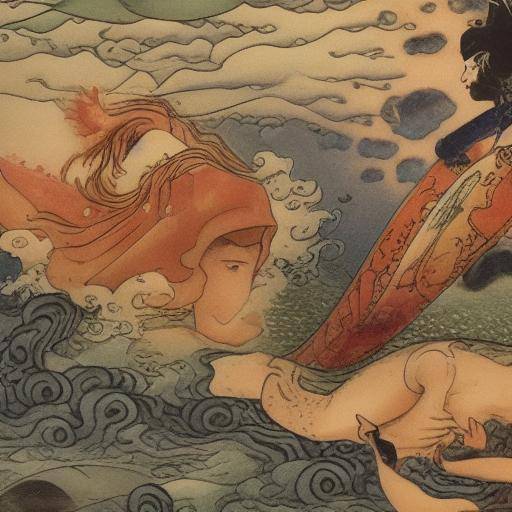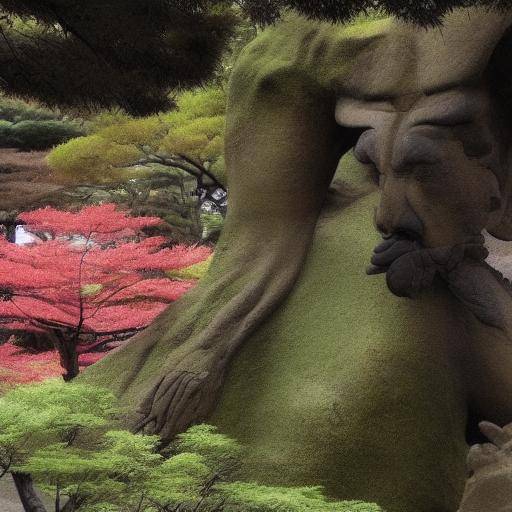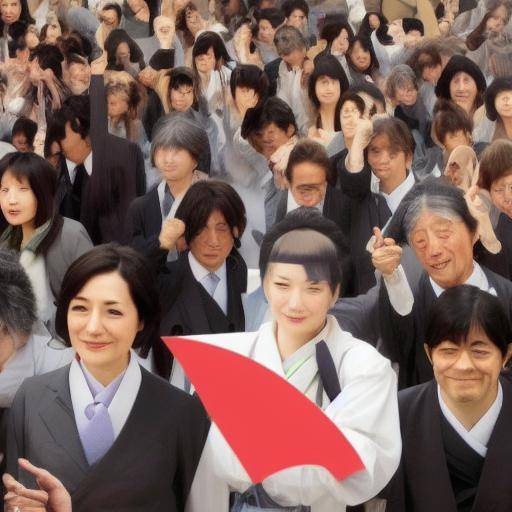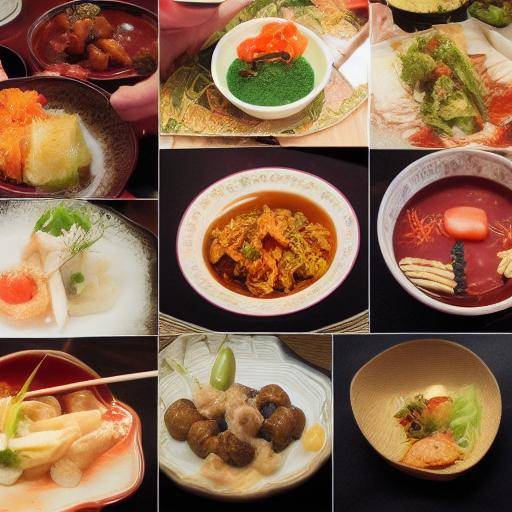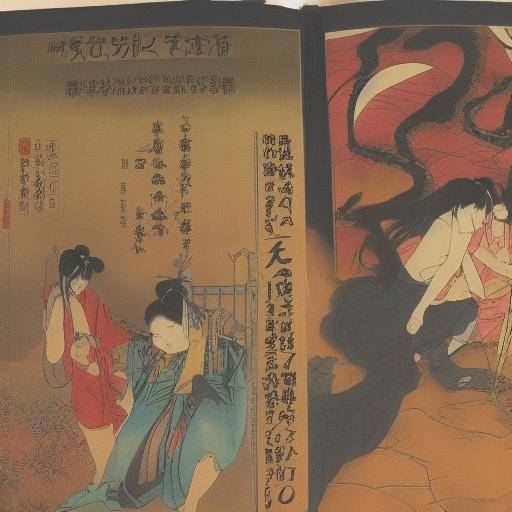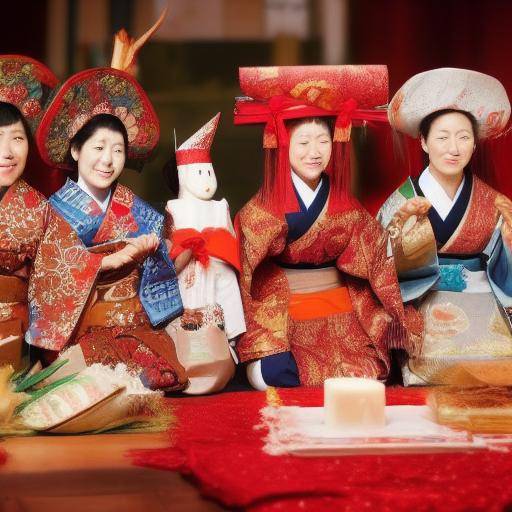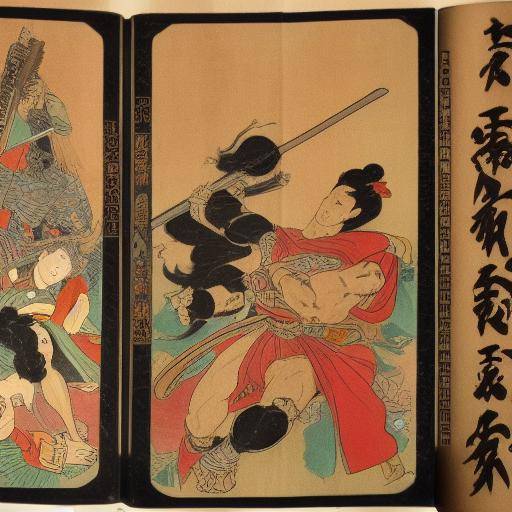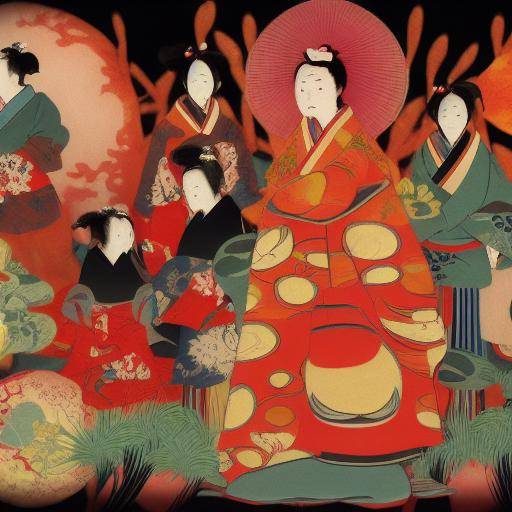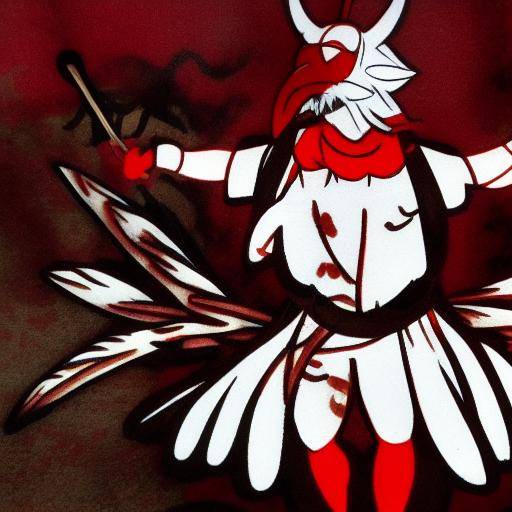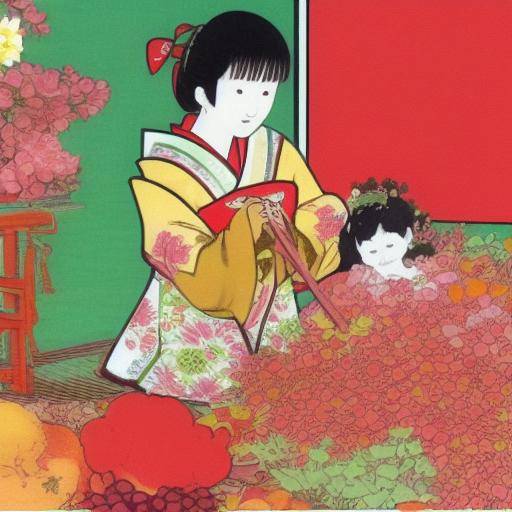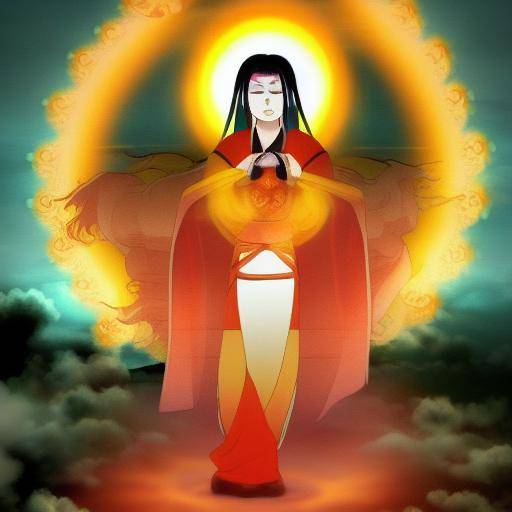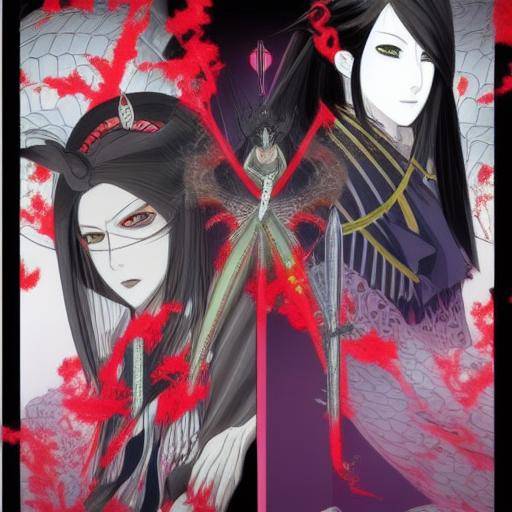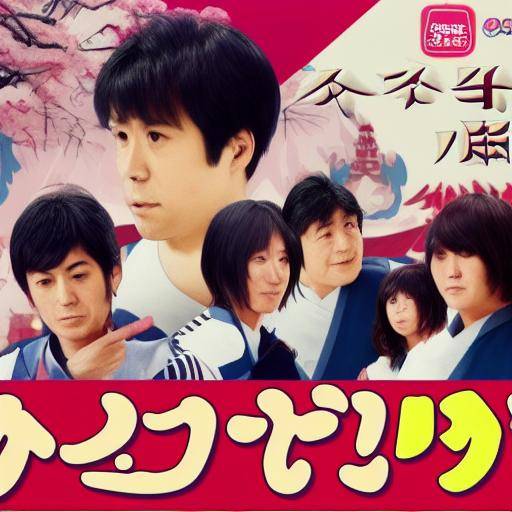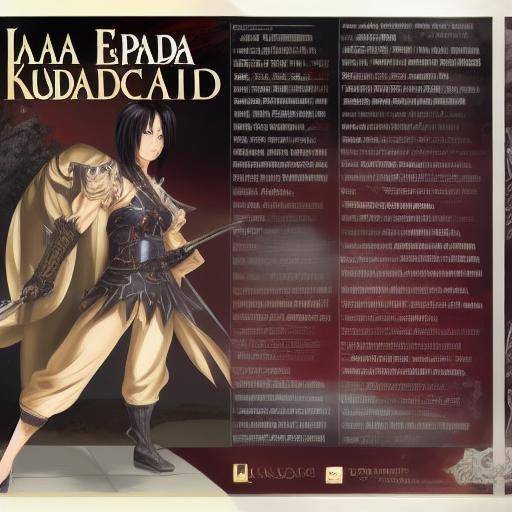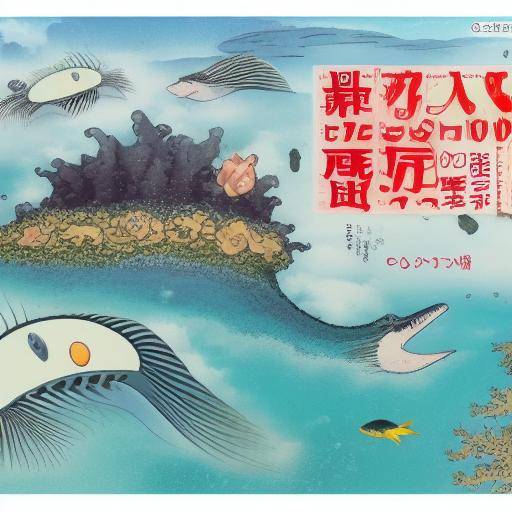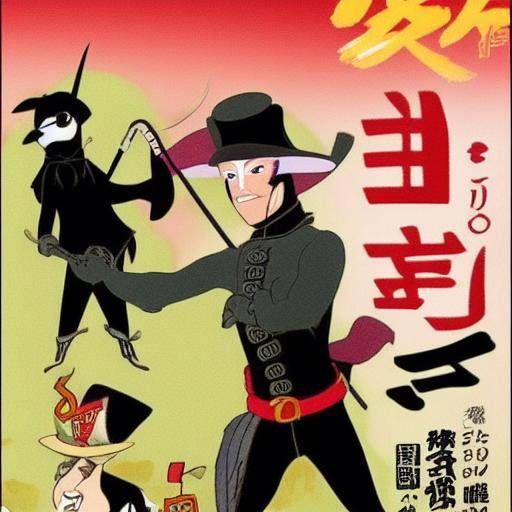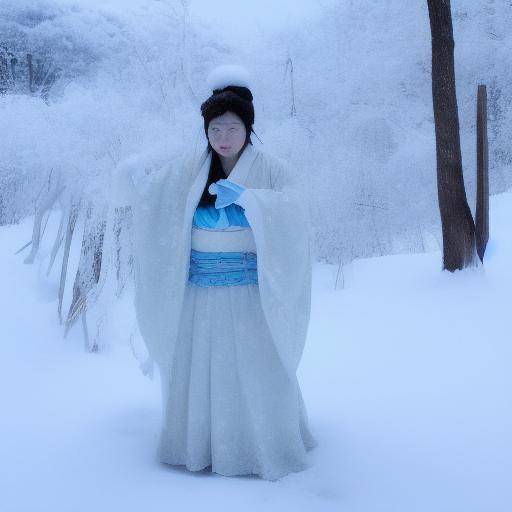
The Japanese culture is full of myths and legends, and among them is the mysterious and fascinating figure of the "yuki-onna" or the woman of the snow. This mythical being, belonging to the category of "yokai" in the Japanese folklore, is known for its frost beauty and its power to freeze the heart. In this article, we will explore in depth the history, meaning and implications of yuki-onna, as well as their relationship with the yokai and their importance in Japan's culture.
Introduction
Since time immemorial, the legends of the snowwoman have captured the imagination of the people in Japan and beyond. The yuki-onna is described as a beautiful woman dressed in white, with pale skin like snow and hypnotic eyes that reflect the cold of winter. According to tradition, its appearance is linked to snowstorms and mountainous regions, where its presence can be both charming and frightening.
In this article, we will enter into the history, symbolism and cultural importance of Yuki-onna, exploring its connection with the Yokai and how it has influenced Japanese society over the centuries.
History and Context
The history of yuki-onna is as old as suggestive. Its origins date back centuries, when the stories passed from generation to generation through oral tradition. The oldest mention of the yuki-onna is found in the "Konjaku Hyakki Shūi" of the seventeenth century, a collection of legends and myths. But its influence has endured in time, impacting contemporary art, literature and culture.
The yuki-onna, like many others yokai, represents a reflection of the fears and wonders of Japanese society. On the one hand, it embodies the supernatural beauty, the fatal attraction and the capricious nature of nature. On the other hand, it also symbolizes the hidden danger, the transientness of life and the mystery of the unknown.
Analysis in Deep
The yuki-onna brings with it a wealth of meaning and symbolism that goes beyond its mystical appearance. His image has been explored in literature, cinema and art, serving as a metaphor for forbidden desires, loss and redemption. Through its representation, the yuki-onna invites us to reflect on the duality of human nature, the escape of beauty and the inevitability of death.
Comprehensive review
By exploring the influence of yuki-onna on Japanese culture, issues arise about how its image has evolved over time and its impact on contemporary folklore. Through a detailed examination of its manifestations in literature, art and society, it is possible to discern how this figure has gained relevance in the collective imagination and in the construction of cultural identity.
Comparative analysis
By comparing yuki-onna with other yokai and aspects of Japanese culture, the deep connections between these folk manifestations and their implications in the collective psyche are highlighted. Exploring the interconnection between yuki-onna, natural elements and popular beliefs reveals a complex network of meanings that enrich our understanding of these concepts.
Practical Tips and Accessible Recommendations
While yuki-onna is primarily a being of mythology and folklore, its influence extends beyond the purely imaginative. Its artistic, literary and cultural representations offer a unique vision of the Japanese mentality, as well as the opportunity to appreciate the beauty and mystery of the natural world.
Perspectives and Opinions of Experts in the Industry
We have consulted prominent experts in Japanese folklore and popular culture, who have shared their knowledge about the significance and importance of yuki-onna in contemporary society. Its perspectives offer a unique vision of how this figure has influenced and continues to influence Japan's cultural narrative.
Case Studies and Applications in Real Life
The impact of yuki-onna can be seen in a variety of contexts, from the literature of terror to modern artistic representations. Various cases of study allow us to understand how this figure continues to inspire new creations and how its legacy endures in human creativity.
Future Trends and Predictions
As the globalized world faces social and cultural changes, it is interesting to analyze how the yuki-onna and other elements of the Japanese folklore will remain relevant in the future. Predictions about its evolution and its influence on popular culture offer a forward look, in a world where tradition and innovation coexist in a complex way.
Conclusions
In short, yuki-onna is much more than a mere figure of folklore. Its lasting presence in Japanese culture and its resonance in world imagination make it an intriguing and revealing symbol. We hope that this exploration has provided an enriching vision of cultural wealth, symbolism and the relevance of yuki-onna in the context of Japanese folklore.
Frequently asked questions
1. What does "yokai" mean in Japanese culture?
The "yokai" are supernatural or monstrous beings of Japanese folklore. They can represent both benevolent and evil forces, and have been a constant presence in Japanese mythology.
2. Why is yuki-onna so iconic inside the Japanese beast?
The yuki-onna, with its image of cold beauty and its aura of mystery, has captured the imagination of generations, becoming an emblematic figure of Japanese folklore.
3. How has yuki-onna impacted on contemporary popular culture?
The yuki-onna continues to inspire works of art, literature, cinema and popular culture in general, showing its continued relevance in contemporary creativity and expression.
4. Are there regional variations in the representations of yuki-onna?
Yes, different regions of Japan have their own yuki-onna versions, with variations in their appearance, behavior and roles in local legends.
5. What are the lessons we can learn from the yuki-onna figure?
Yuki-onna teaches us about the ephemeral beauty, the power of nature and the mysteries of life and death, giving deep reflections on the human condition.
6. What is the role of yuki-onna in modern Japanese culture?
Although yuki-onna is a figure of the past, its resonance persists in Japanese popular culture, serving as a reminder of the rich folk heritage of the nation.
With these complete answers to the frequently asked questions, we are confident that we have provided an integral vision of yuki-onna, yokai and its importance in Japanese culture.
In conclusion, yuki-onna is a fascinating example of how folklore can transcend generations and borders, impacting culture in a profound and lasting way. His influence in Japanese society remains relevant, and his mystery will continue to capture the imagination of those who venture to enter their legends.
With a rich history, a deep symbolic representation and a significant cultural impact, Yuki-onna stands as an emblematic and intriguing figure in the vast panorama of Japanese folklore.
We hope that this article has provided an enriching insight into the fascinating figure of Yuki-onna, offering a deeper appreciation of its meaning, legacy and relevance to Japanese culture and beyond.


